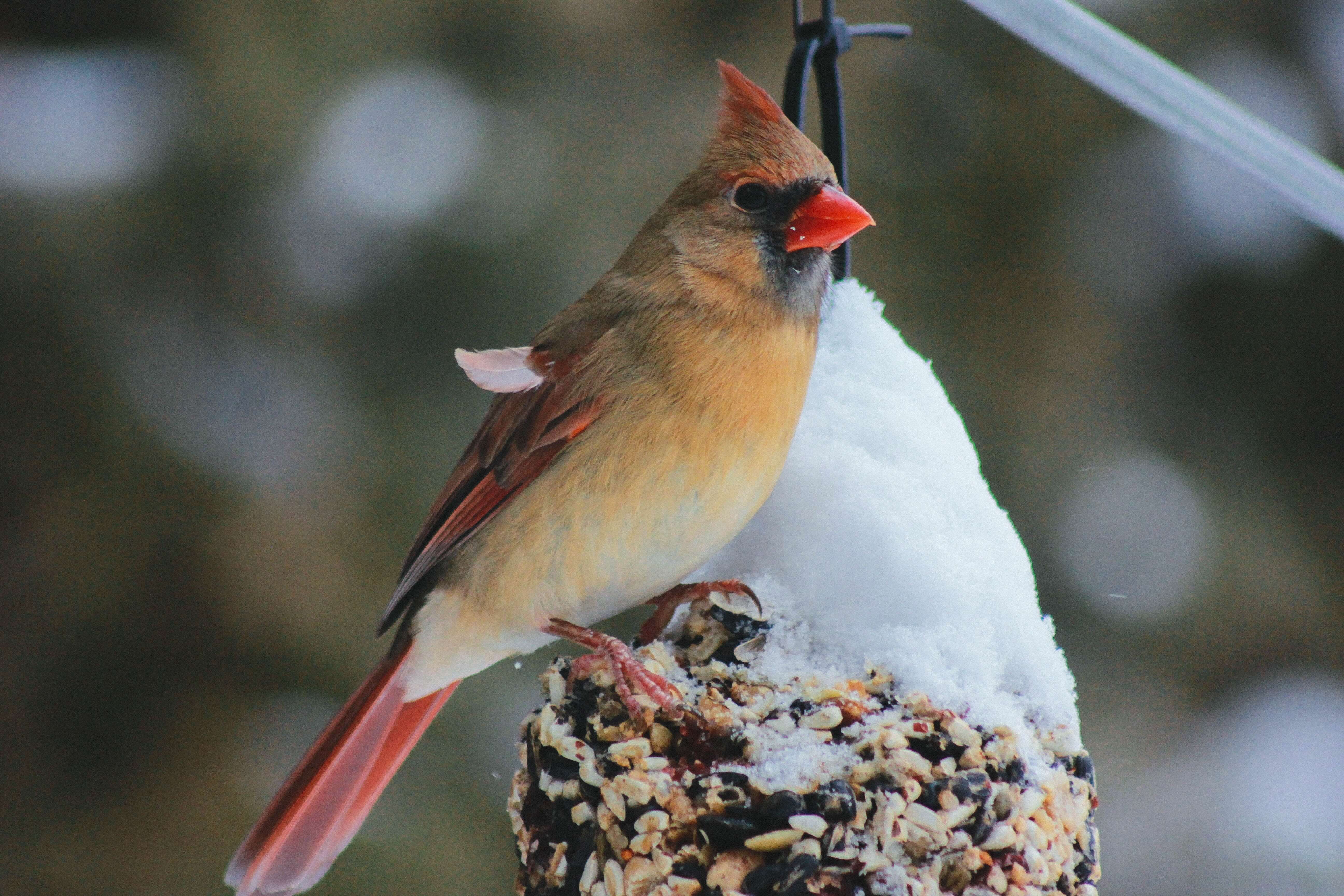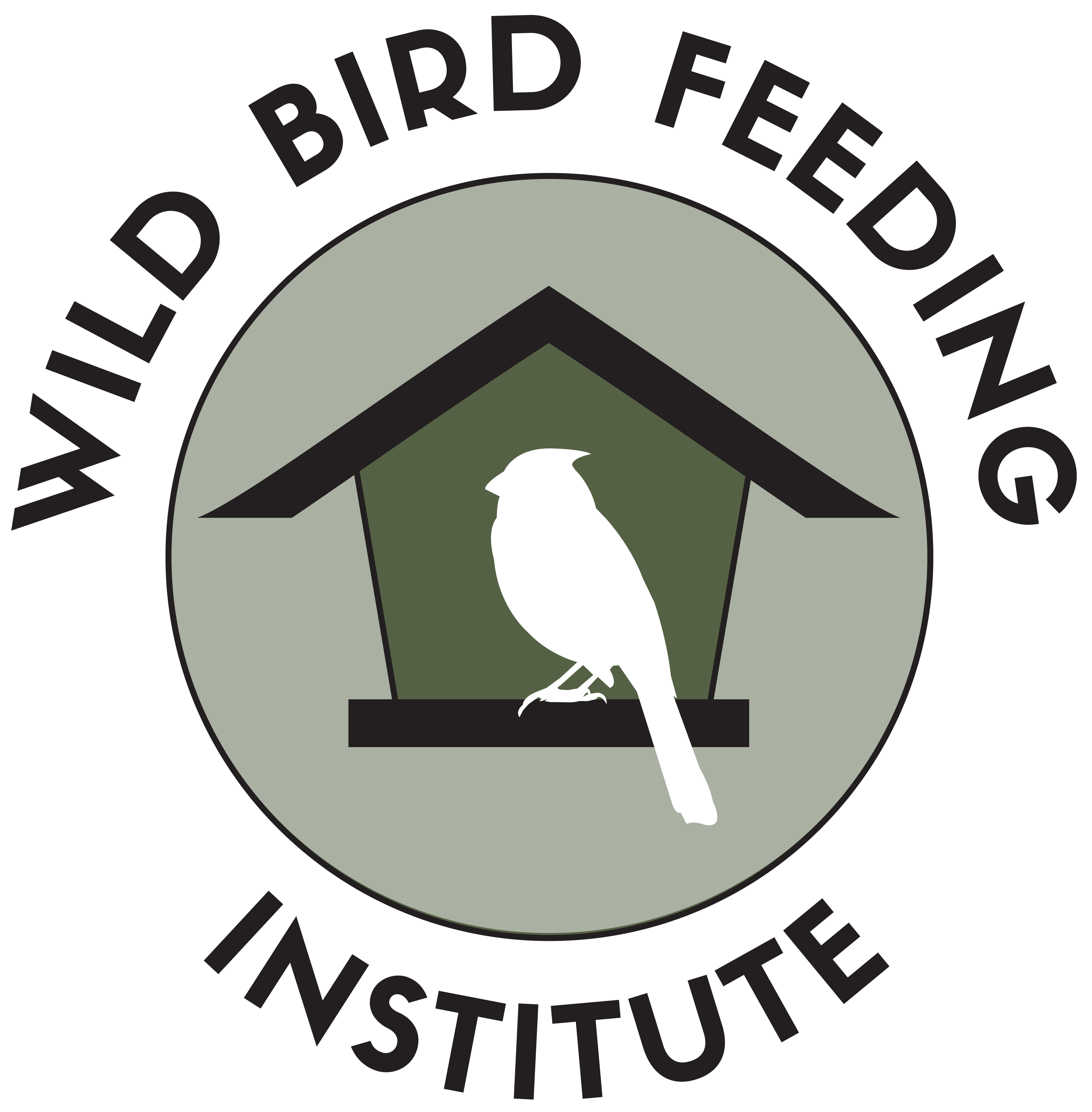Importance of Helping our Flying Friends in Winter

Getting outside and interacting with birds can be very beneficial for the mind, body, and soul. Spending time with birds can improve general well-being and long-term physical and mental health. The benefits of being outside include mitigated symptoms of anxiety and depression, reduced risk of heart disease, and improved sleep. By including feeding the birds, you can double the benefits of enjoying nature. We can ensure their survival and happiness just as they do for us by creating a sanctuary for birds who brave the elements.
PREPARE A BANQUET
Providing extra food supplies for a variety of bird species during the winter caters to their extra need for energy during the harsh winter months. Some species, such as chickadees and finches, are more dependent on supplemental nutrition. The best high-energy foods to provide your feathered friends in the winter include black-oil sunflower seeds, suet cakes, Nyjer(R) seeds, and more. Certain foods will attract different species, for example, you can provide mealworms for bluebirds or peanuts and sunflower seeds for woodpeckers. A bird bath or birdhouse can also attract non-feeder birds and support all species with extra resources in cold climates. Look for the WBFI Quality Standards logo when purchasing bird food to ensure quality products that will attract the birds you want.
Resources:
- WBFI Locate a Retailer Map
- WBFI Bird Feed Basics
- Feederwatch: Guide to Common Feeder Birds
- Bird Food, Feeder Types & Preferences
LOCATION, LOCATION, LOCATION
By making your yards more bird-friendly, you can increase their chances of survival and keep their energy levels high this winter. It's important to keep in mind placement, location, and the many types of bird feeders while providing a winter haven for birds. With nesting boxes or thistle feeders, you may draw in a larger range of bird species. Feeders should be placed at various heights and in various locations to keep animals safe from predators and to avoid overpopulation or conflicts between species. You can gather a pile of fallen branches or logs to keep them safe from winter storms or rake up a pile of foliage to attract the plant-eating insects they love to eat. It's also crucial that these places have a clean water supply, such as a heated birdbath, in order to stay hydrated and avoid freezing in the winter. Providing these resources can help your feathered friends flourish in the winter.
Resources:
- Local wild bird food retailers, nature centers, garden centers, & land trusts
- Wild Ones
- Audubon’s Plants for Birds
- WBFI’s Create a Backyard Sanctuary Guide
CITIZEN SCIENCE EFFORTS
Reporting your birding observations helps scientists better understand global bird populations before one of their annual migrations. Take part in the Great Global Bird Count during National Birding Month.
On bitter winter nights, effective resting & feeding places can make a world of difference for birds. Your actions can ensure the survival of our feathered friends and help them beat the insurmountable difficulties they face during the winter by providing food, water, and shelter. These small, feathery creatures can have a big impact on the lives of many, making it everyone’s duty to protect them when cold conditions threaten their chances of survival.
Learn more at
https://www.wbfi.org/feedthebirds/
https://www.nytimes.com/2022/12/10/well/move/bird-watching-health-benefits.html
